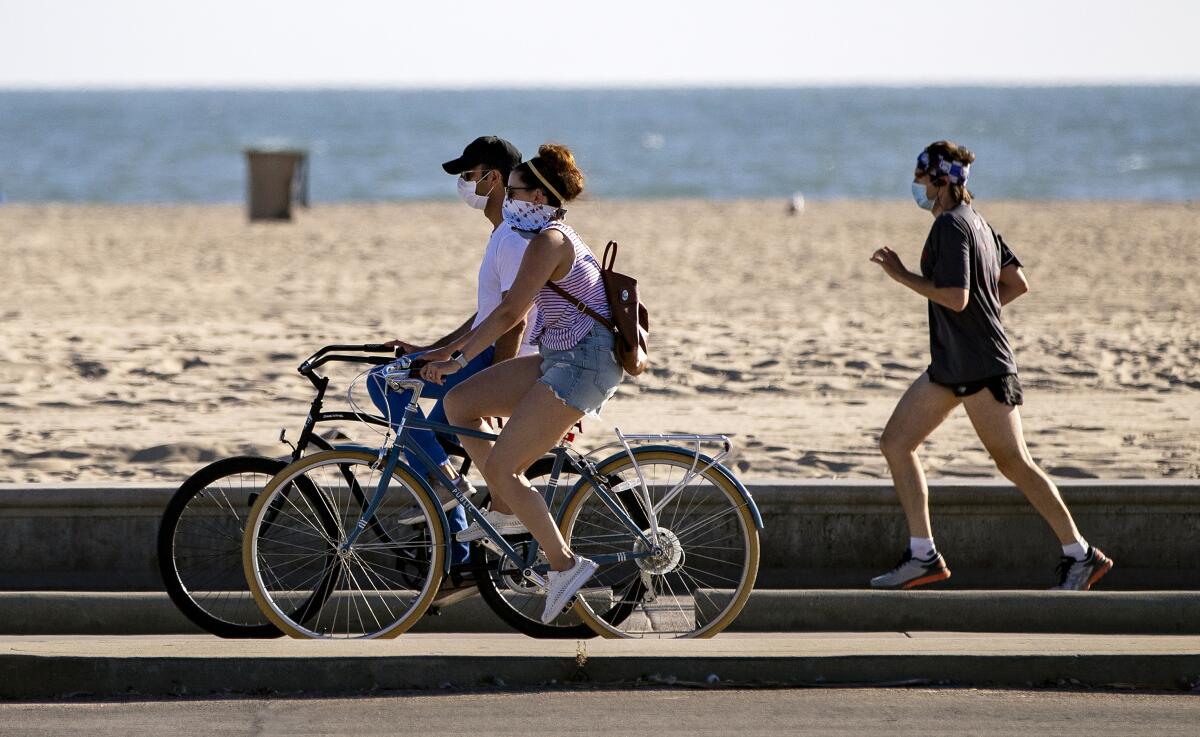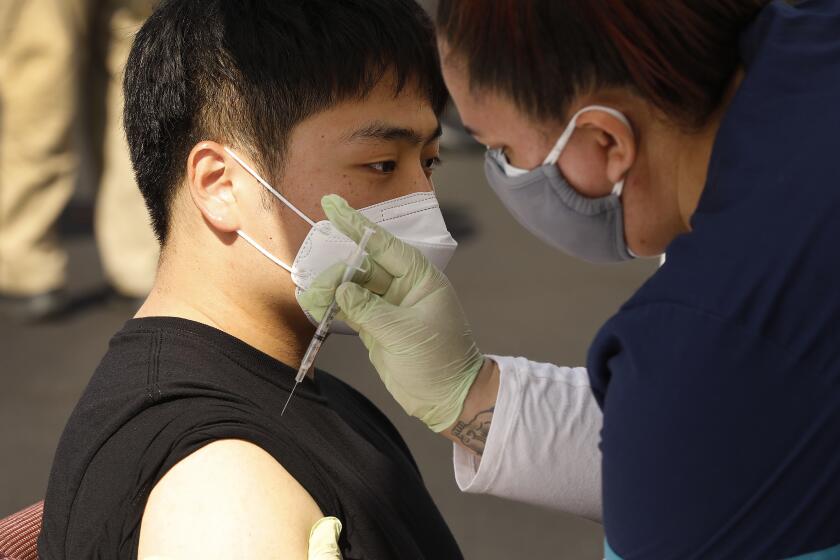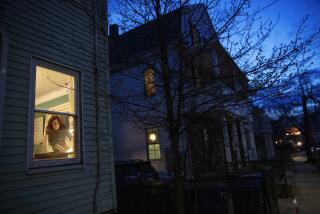CDC relaxes its advice about wearing masks outdoors

U.S. health officials say fully vaccinated Americans don’t need to wear masks outdoors anymore unless they are in a big crowd of strangers, and those who are unvaccinated can go without a face covering outside in some cases, too.
The Centers for Disease Control and Prevention released the updated guidance Tuesday in yet another carefully calibrated step on the road back to normal from the coronavirus outbreak that has killed more than 570,000 people in U.S.
For most of the past year, the CDC had been advising Americans to wear masks outdoors if they are within six feet of each other.
The change comes as more than half of U.S. adults have gotten at least one dose of COVID-19 vaccine, and more than a third have been fully vaccinated.
“It’s the return of freedom,” said Dr. Michael Saag, an infectious diseases expert at the University of Alabama at Birmingham who welcomed the change. “It’s the return of us being able to do normal activities again. We’re not there yet, but we’re on the exit ramp. And that’s a beautiful thing.”
More people need to be vaccinated, and concerns persist about variants and other possible shifts in the epidemic. But Saag said the new guidance is a sensible reward following the development and distribution of effective vaccines and about 140 million Americans stepping forward to get their shots.
The CDC, which has been cautious in its guidance during the crisis, essentially endorsed what many Americans have already been doing over the past several weeks.
The CDC guidance says that fully vaccinated or not, people do not have to wear masks outdoors when they walk, bike or run alone or with members of their household. They also can go maskless in small outdoor gatherings with fully vaccinated people.
But from there, the CDC has differing guidance for people who are fully vaccinated and those who are not.
With so many Americans becoming immunized, it’s natural to look ahead and wonder how long this protection will last. The answer: No one knows.
Unvaccinated people — defined by the CDC as those who have yet to receive both doses of the Pfizer or Moderna vaccine or the one-shot Johnson & Johnson formula — should wear masks at outdoor gatherings that include other unvaccinated people. They also should keep using masks at outdoor restaurants.
Fully vaccinated people do not need to cover up in those situations, the CDC says.
However, everyone should keep wearing masks at crowded outdoor events such as concerts or sporting events, the CDC says.
The agency continues to recommend masks at indoor public places, such as hair salons, restaurants, shopping centers, museums and movie theaters.
Health officials in California said they would adopt the more lenient guidance.
“We have reviewed and support the CDC’s new masking recommendations and are working quickly to align California’s guidance with these common sense updates,” said Dr. Tomás Aragón, director of the California Department of Public Health.
“We continue to urge all eligible Californians to get vaccinated to help us move past this pandemic,” he added.
Dr. Babak Javid, a physician-scientist at UC San Francisco, said the new CDC guidance is sensible.
“In the vast majority of outdoor scenarios, transmission risk is low,” Javid said.
What kinds of activities are safe for families to do when the adults are fully vaccinated but the kids aren’t?
Javid has favored outdoor mask-wearing requirements because he believes they increase indoor mask-wearing, but he said Americans can understand the relative risks and make good decisions.
“The key thing is to make sure people wear masks indoors” while in public spaces, he said.
He added: “I’m looking forward to mask-free existence.”
“The timing is right because we now have a fair amount of data about the scenarios where transmission occurs,” said Mercedes Carnethon, a professor and vice chair of preventive medicine at Northwestern University’s Feinberg School of Medicine in Chicago.
What’s more, she said, “the additional freedoms may serve as a motivator” for people to get vaccinated.
Times staff writer Luke Money contributed to this report.








